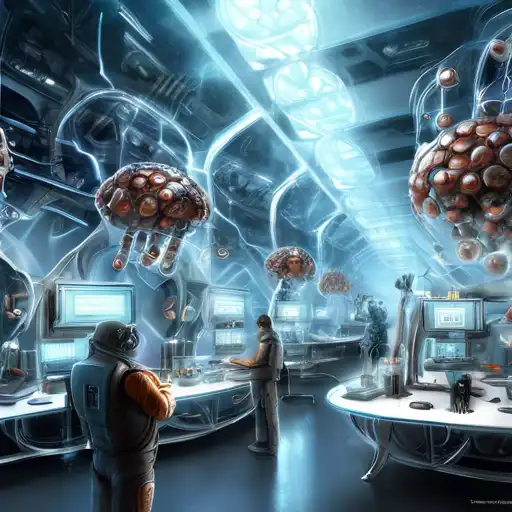Nanotechnology: Tiny Innovations Driving Massive Changes
In the realm of modern science and technology, nanotechnology stands out as a groundbreaking field that manipulates matter at an atomic and molecular scale. This tiny tech is making a big impact across various industries, from healthcare to electronics, and environmental science. The potential of nanotechnology is vast, offering solutions to some of the world's most pressing challenges.
What is Nanotechnology?
Nanotechnology involves the engineering of functional systems at the molecular scale. This encompasses both current work and concepts that are more advanced. In its original sense, nanotechnology refers to the projected ability to construct items from the bottom up, using techniques and tools being developed today to make complete, high-performance products.
Applications of Nanotechnology
The applications of nanotechnology are diverse and transformative. Here are some key areas where nanotech is making a difference:
- Healthcare: Nanotechnology is revolutionizing medicine with targeted drug delivery systems, improved diagnostic methods, and even nanorobots that can repair damaged tissues.
- Electronics: The electronics industry benefits from nanotechnology through the development of smaller, faster, and more efficient devices.
- Environmental Science: Nanotech offers innovative solutions for water purification, pollution control, and sustainable energy sources.
- Manufacturing: At the nanoscale, materials exhibit unique properties, leading to stronger, lighter, and more durable products.
The Future of Nanotechnology
The future of nanotechnology is bright, with ongoing research and development paving the way for more advanced applications. Scientists are exploring the use of nanotechnology in space exploration, quantum computing, and even in the fight against climate change. The possibilities are endless, and the impact of nanotechnology will only grow in the coming years.
Challenges and Ethical Considerations
Despite its potential, nanotechnology faces challenges, including technical hurdles, high costs, and ethical concerns. The manipulation of matter at such a small scale raises questions about safety, privacy, and the environmental impact of nanomaterials. Addressing these concerns is crucial for the responsible development of nanotechnology.
Nanotechnology is a testament to human ingenuity, offering tiny solutions to big problems. As we continue to explore and harness the power of the nanoscale, the impact of this technology will undoubtedly expand, shaping the future in ways we can only begin to imagine.
